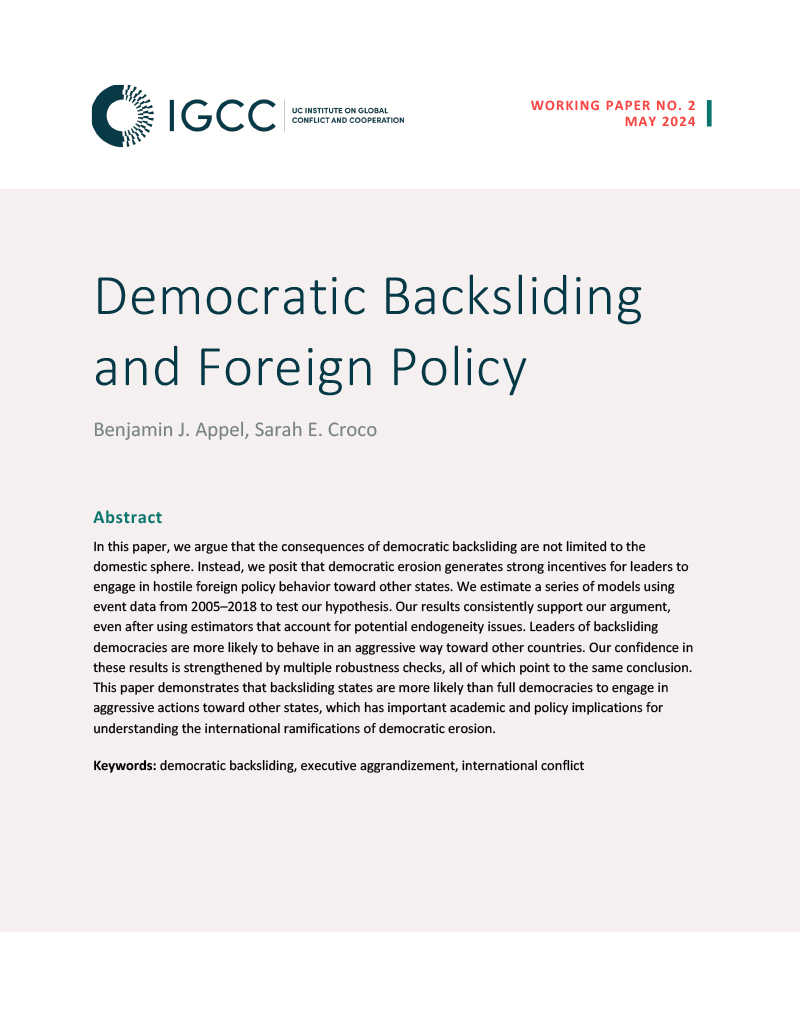Democratic Backsliding and Foreign Policy

In this working paper, co-authors Benjamin Appel and Sarah Croco argue that the consequences of democratic backsliding are not limited to the domestic sphere. Their research demonstrates that backsliding states are more likely than full democracies to engage in aggressive actions toward other states, which has important implications for understanding the international ramifications of democratic erosion.
DownloadIn this working paper, Benjamin Appel, associate professor at the UC San Diego School of Global Policy and Strategy, and Sarah Croco, professor in the Department of Government and Politics at the University of Maryland, argue that the consequences of democratic backsliding are not limited to the domestic sphere. Instead, they posit that democratic erosion generates strong incentives for leaders to engage in hostile foreign policy behavior toward other states. Appel and Croco estimate a series of models using event data from 2005–2018 to test their hypothesis. The results consistently support their argument, even after using estimators that account for potential endogeneity issues. Leaders of backsliding democracies are more likely to behave in an aggressive way toward other countries. Confidence in these results is strengthened by multiple robustness checks, all of which point to the same conclusion. This paper demonstrates that backsliding states are more likely than full democracies to engage in aggressive actions toward other states, which has important academic and policy implications for understanding the international ramifications of democratic erosion.
Thumbnail credit: Rawpixel